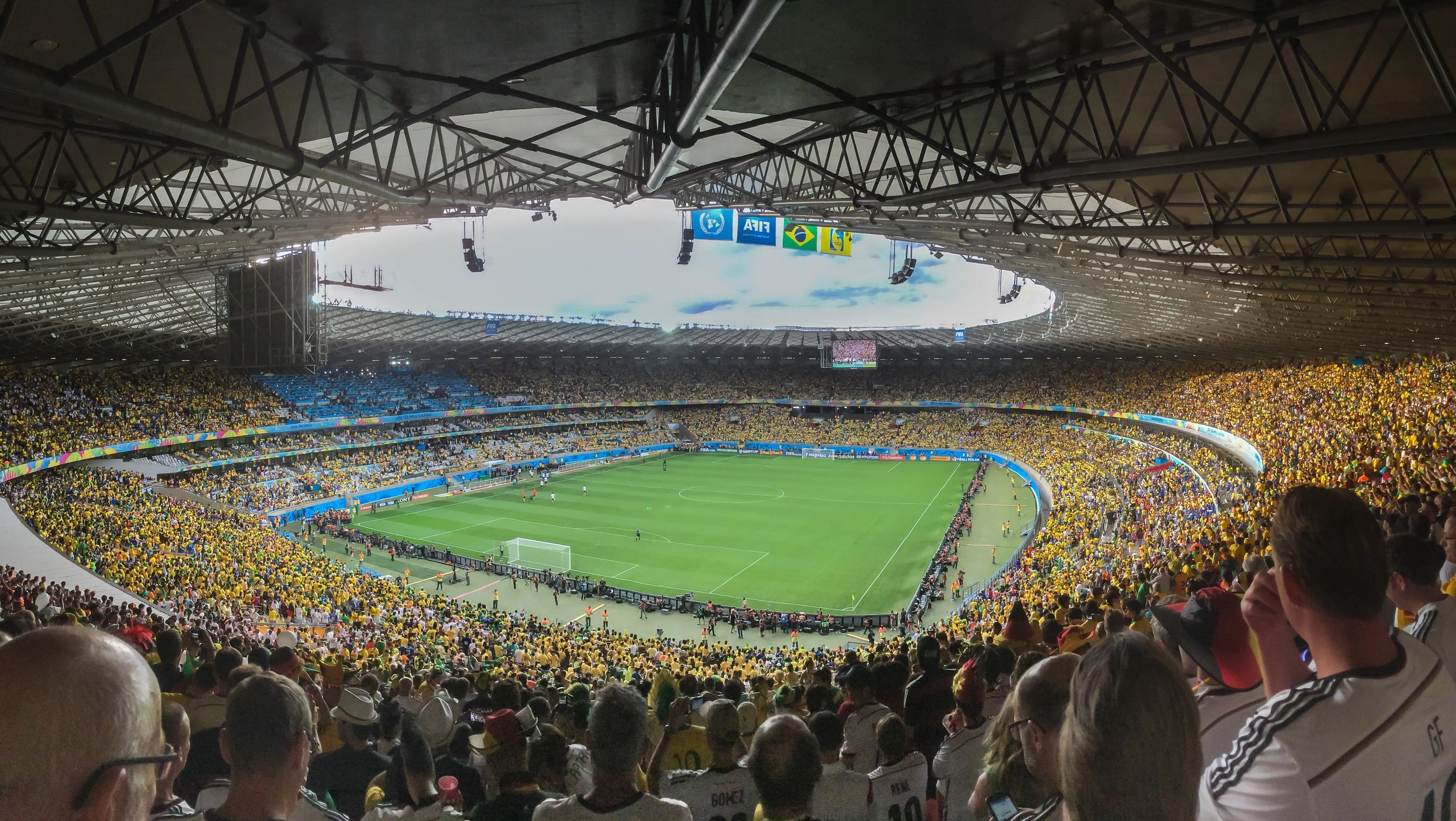FIFA 2014 World Cup Stadiums in Brazil
Location: Various Cities, Brazil
Typology: Stadium
Sector: Sports & Recreation
Sustainability Goals: LEED Certifications
AAW Services: Construction Waste Management Plan, Waste Generation Calculations, Waste Signage Design, Waste Infrastructure Concept Design
In preparation for the 2014 FIFA World Cup, twelve venues across twelve Brazilian cities were selected, comprising seven new and five renovated stadiums. These cities also hosted the 32 teams and fan-zones for spectators without tickets for the stadiums. With around 3 million tickets sold, mostly within a day, these host cities, each the capital of its state, ensured an evenly distributed hosting across Brazil’s main regions. The 64 matches of the World Cup were staged in these state-of-the-art venues.
As a leading zero waste and circular economy consultant, Denise Braun, CEO and co-founder of All About Waste (AAW), led the waste management programs and studies for projects aiming for LEED certifications. This effort was part of the broader development supporting the 2014 FIFA World Cup in Brazil and included not only the stadiums but also high-rise commercial buildings, event and sport arenas, and various other facilities within the master development plan.
Our waste management services for the World Cup, included:
Consulting and monitoring indicators for buildings to optimize resource usage, reduce operational costs, and address health and user well-being issues.
Developing construction waste management plans and policies.
Conducting waste audits.
Preparing LEED certification documentation.
Creating and conducting education programs to support zero waste strategies.
Executing waste generation calculations.
Developing waste signage designs.
Completing waste infrastructure concept designs
Stadiums supported include:
Rio de Janeiro, RJ - Estádio do Maracanã
Capacity: 74,738
98,776.13 m2 (26,026.18 m2 newly constructed; 72,749.95 m2 renovated)
Achieved LEED BD&C New Construction v3 Silver certification
Easy access areas located on the ground floor were destined to the collection and storage of materials for recycling.
A Recycling and Selective Collection Program was developed for user awareness, including internal logistics, transportation and final destination.
55% of the vertical structures, façades and fences existing in the original design were maintained, ensuring a significant reduction in waste generation caused by the renovation of the stadium.
The amount (by volume) of waste diverted from landfills was 50%, excluding hazardous waste and soil / land.
Belo Horizonte, MG - Estádio Mineirão
Capacity: 58,259
51,100 m2 renovated area
Achieved LEED BD&C New Construction v3 Platinum certification
Most of the existing structure (façades, beams, slabs and pillars) has been maintained, avoiding landfill materials and unnecessary use of resources, resulting in increased service life of the existing building.
All materials from the dismantling of the stage before demolition, such as lamps, railings, chairs and even the grass of the field, were donated for use in other public buildings.
The quantity (by volume) of waste diverted from landfills during the demolition and construction of the stadium was 79.44%, excluding hazardous waste and soil.
12.96% (by mass) of the total cost of materials incorporated into the Stadium has recycled content in its composition.
Approximately 49% of the cost of materials used came from materials manufactured and extracted within a radius of 800 km.
These comprehensive services ensured that the venues and associated facilities not only met but exceeded sustainability goals, contributing to a successful and environmentally responsible 2014 FIFA World Cup.
All About Waste consultants supported these projects in partnership with CTE – Centro de Tecnologia de Edificações (Building Technology Center).


